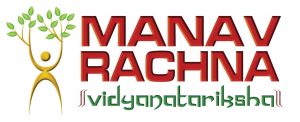
- Child Centered Pedagogy and Management
- Differentiation of Instruction through Effective Teaching Strategies and Multiple Intelligence Theory
- Interdisciplinary and Experiential Learning Opportunities
- International Learning Partnerships
- Holistic Assessment and Evaluation
- Instructional Computing and Technology (ICT)
- Character Education, Leadership and Team Building
DELIVERY OF ACADEMIC CURRICULUM
- We have Smart Classrooms to help teachers in delivering the concept better, and produce more meaningful learning experiences by using audio/visual aids from various sources.
- Group Classroom Experiments: A number of students work in groups on carefully designed guided inquiry questions.
- Role Plays: Role Plays are an effective method of getting the message across. Students take on the role of a person affected by an issue and studies the impacts of the issues on human life and/or the effects of human activities on the world around us from the perspective of that person. More rarely, students take on the roles of some phenomena, such as part of an ecosystem, to demonstrate the lesson in an interesting and immediate manner.
- Projects and Models: Known as the effective teaching tools, models and projects are used as demonstrative tools to explain a particular concept. Once the child creates his/her own project, it is easier for the child to internalize the concept by ‘learning by doing’.
- Context rich problems: Short realistic scenarios giving the students a plausible motivation for solving the problem. The problem is a short story (beginning with “you”) in which the major character is the student. Context rich problems reflect the real world, and may include excess information, or require the student to recall important background information.
- Interactive Lectures: Easy way for instructors to intellectually engage and involve students as active participants in a lecture. Students are encouraged to participate in an activity that lets them work directly with the material.
- Socratic Questioning: Socratic approach turns a lecture into a guided discussion wherein the instructor poses thoughtful questions to students.
- Comprehensive and Continuous Assessment: Provides educators with a better understanding of what students are learning and engages students more deeply in the process of learning.
INNOVATIONS IN CURRICULUM AT DIFFERENT LEVELS
- MRIS lay stress on sound and strong academics through its concept and project based learning. The teaching and learning is based on multisensory and multiple intelligence approach. We have adapted a very unique approach “Learning Center Approach” for the students of Nursery and K.G.
- Various learning centres like Literacy, Numeracy, Hop and Toss, Science allow children to explore and apply newly learnt skills independently.
- Concept of United Nation Sustainable Development Goals (UNSDGs) have been introduced in the curriculum. In this, students work on an annual project which is based on one of the SDGs. They research, conduct surveys, participate in debates, and interact to prepare a complete solution to the problem.
